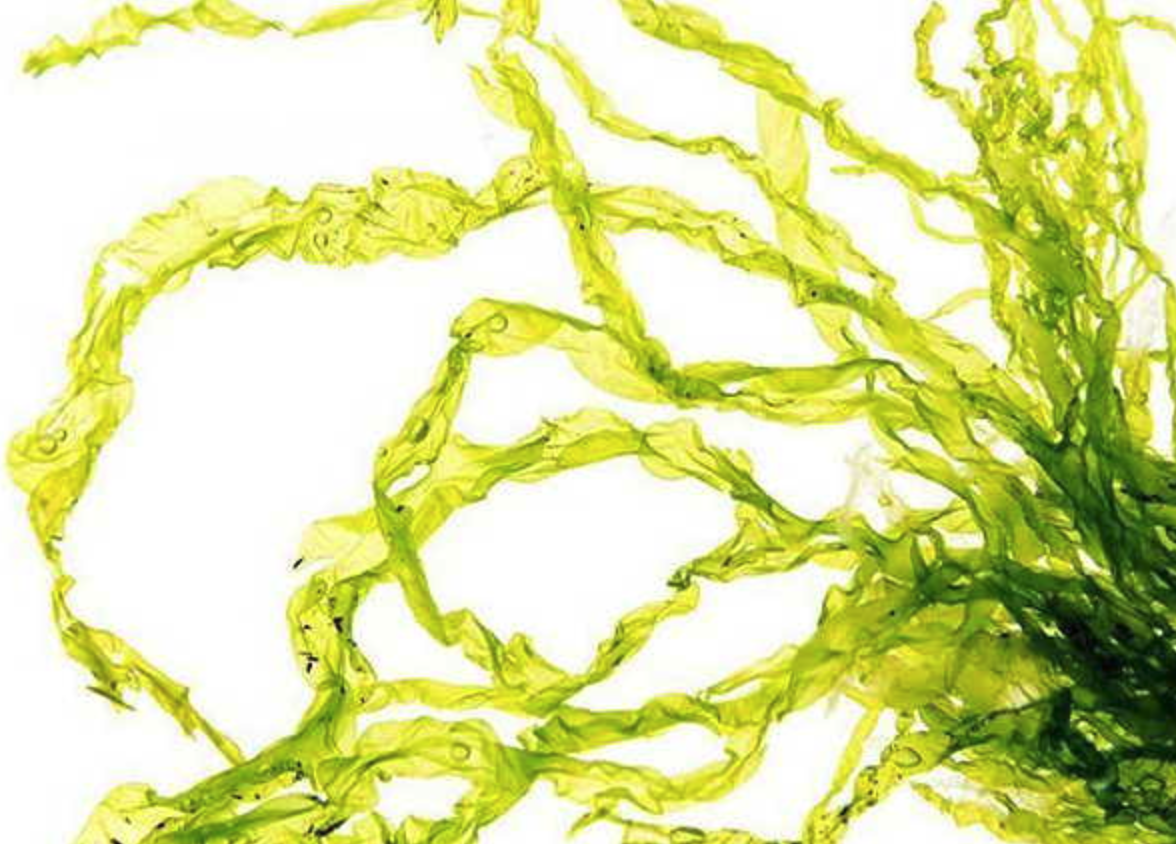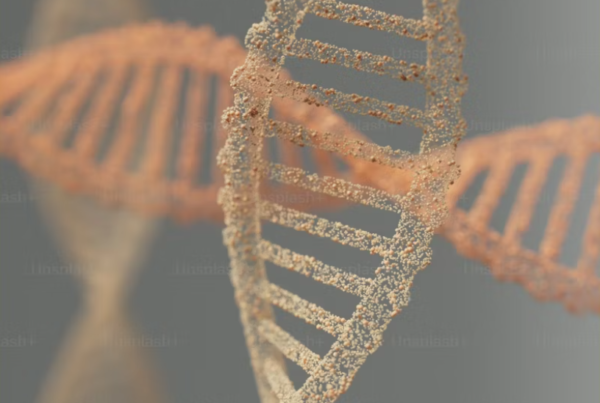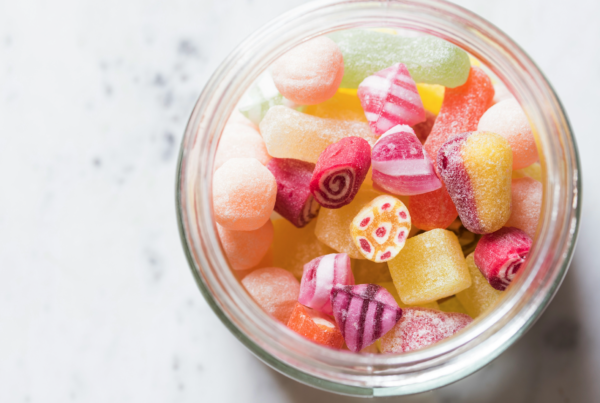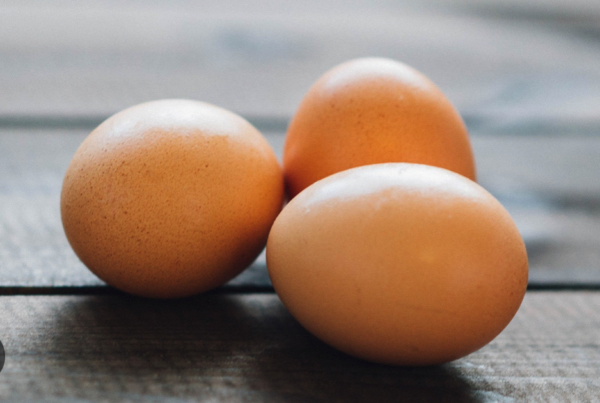Seaweeds’nutritional richness make them true allies of our health.
They are bombs of minerals, vitamins, trace elements that help protect against cardiovascular disease while stimulating immunity. Algae are also rich in omega 3 and they are very popular with vegetarians because of their richness in vegetable proteins (all essential amino acids in most species).
Seaweed contains antioxidants such as carotenoids, flavonoids, vitamins A, C, E. and also vitamin B12.
At the mineral level, they are loaded with calcium, magnesium, potassium, iron and iodine. Iodine is an essential mineral for our body, for which very many people are deficient. Consuming seaweed is therefore an excellent way to maintain a good level of iodine, essential for the proper functioning of our thyroid (see my post Iodine Deficiency).
Seaweed contains significant amounts of dietary fiber, which helps nourish our intestinal “good bacteria”. This high fiber content guarantees good intestinal health but also proper metabolism of sugars and fats.
Personally, I started to introduce seaweed into our family diet after noticing an iodine deficiency in my two teenage daughters. I started to use them first in the form of flakes and powder, especially in gommasio that I make myself at home, then more broadly in certain dishes.
It is only recently that I enriched my repertoire, following a cooking workshop with seaweed, given by Sofia Ramos of the Restaurant Terra Viva in Espinho. Sofia taught us several simple, easy to make seaweed recipes and I’m sharing one of them at the end of this article.
At the restaurant, I met Fernanda Lopes, collaborator of the Algamar brand for more than 25 years. Fernanda made us want to know everything about the wonderful ocean vegetables that are seaweed. Her favorites are seafood spaghetti and wakame whose flavor is delicate, very versatile for quick cooking and dishes to everyone’s taste.
Algamar is a major player in the edible seaweed market, with close research activity between its innovation and development department and the University of Vigo in Spain. At Algamar, seaweeds are harvested manually, in the cleanest waters of the Atlantic coast, then dried at low temperature. They are all certified organic. Manual collection at sea respects the cycles and annual renewal of algae. Algamar has received several awards as a model of innovation, management and respect for natural resources.
There are different varieties of seaweed:
– Brown algae: wakame, kombu, sea beans, fucus
– Red algae: dulse, nori
– Green algae: sea lettuce, glasswort
– Micro-algae: spirulina, chlorella
Seaweeds are easily found in a dry version, in the form of sheets, flakes or powder. Fine algae such as sea lettuce or dulse are to be sprinkled as a condiment on dishes, soups or salads. Thicker ones must be rehydrated by soaking in cold water, which can last from a few minutes to 30 minutes for wakame.
Added to the cooking water of beans, chickpeas and lentils, kombu/kelp seaweed will help to alkalize and improve digestion. In this case, a small strip 6 or 7 cm long will be used. Fresh seaweed, on the other hand, can be kept for several months if packaged in salt. In this case, they must be desalted before consumption.
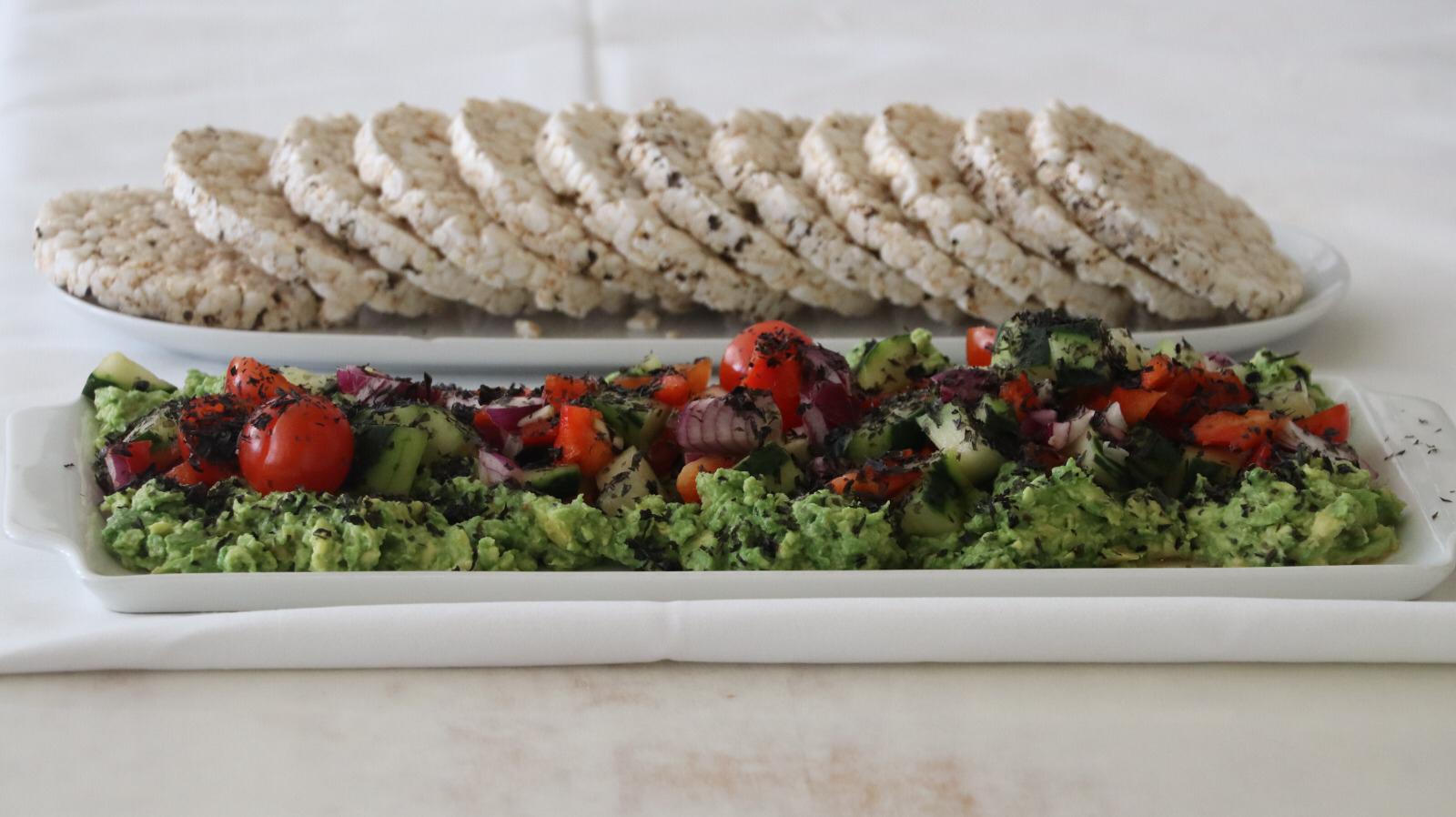
Salad of cherry tomatoes, cucumber on a bed of avocado and nori seaweed (Sofia Ramos/Terra Viva)
(PS: If you are respectful of the seasons you will have to wait a few months to treat yourself because tomatoes and peppers are not yet ripe!)
Ingredients: 2 tablespoons of nori in flakes (or cut into strips with scissors) – 1 red bell pepper – 10 cherry tomatoes – 2 avocados – 1 small red onion – 2 cucumbers – 1 clove of garlic – juice and zest of a lemon – salt, pepper, fresh coriander.
Preparation: Cut the peeled cucumber into small sections. Let desalinate with 1/2 tsp of salt. In a salad bowl, put the pressed garlic, the onion, the tomatoes cut in half with lemon juice and zest. Add the cucumber stripped of its water.Arrange the cucumber and tomato salad on a dish in which you have spread the coarsely crushed avocado with a little salt, lemon juice and fresh coriander.Sprinkle with nori seaweed and additional coriander. WarningDue to the presence of vitamin K, the consumption of these algae is not recommended for people on blood thinners.

